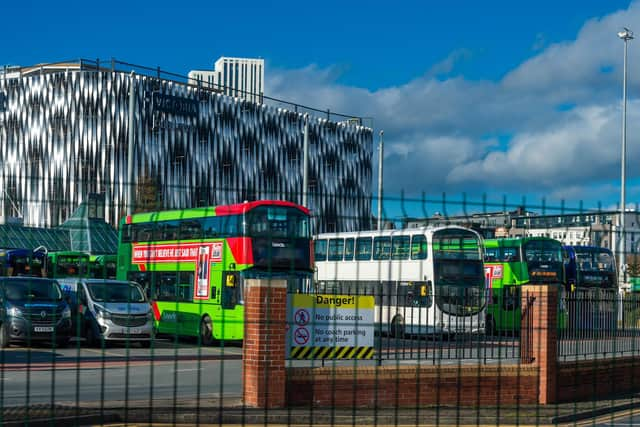£3.8m of taxpayer money to be spent to support struggling bus services in West Yorkshire
More than 70 services in the region have been axed or reduced since 2021, as private operators have seen revenues plummet during the pandemic and also been hit by rising fuel costs, inflation and bus driver shortages.
Political leaders on West Yorkshire Combined Authority agreed to hand £3.8m to struggling operators, to help them protect services, during a meeting in Leeds.
Advertisement
Hide AdAdvertisement
Hide AdThe money will be taken from a £70m grant, which West Yorkshire Mayor Tracy Brabin was planning to spend on an ambitious strategy to make services more frequent, more affordable and more reliable.


“This money will help protect the network where the market has failed,” she said. "In the meantime, I would urge bus operators to work with us to avoid cutting back further on much needed bus services.”
However, political leaders in West Yorkshire have been told the Department of Transport needs to release the money before it can be handed over.
“Since the pandemic, it’s been very much hand to mouth trying to plan transport,” said Councillor Susan Hinchcliffe, leader of Bradford Council.
“We need to know when we’re going to get it.”
Advertisement
Hide AdAdvertisement
Hide AdThe Government has already provided £2bn of support to operators across the country during the pandemic, to help them protect services, and recently announced it will hand out another £300m over the next two years.
In West Yorkshire, Ms Brabin is looking to bring buses back under public control within four years.
The Labour mayor has said private operators have overseen a “managed decline” in recent years, as unreliable services and route closures have driven passengers away, but she wants to “turn the tide”.
The number of journeys made in the region fell from around 170m in 2009 to 133m in 2019/20.
Advertisement
Hide AdAdvertisement
Hide AdBut she has also been working to improve services and increase passenger numbers, since securing almost £70m of Government funding for an ambitious bus service improvement plan.
Around £30m is due to be spent on upgrading the bus network and introducing new services on a number of routes, to make them more frequent and more reliable.
She has also convinced operators to cap single fares at £2 and day passes at £4.50, in exchange for around £1.2m of subsidies each month.
WYCA said passengers made 7.2m journeys using these discounted fares between September and December last year and they saved around £3.4m.
Advertisement
Hide AdAdvertisement
Hide AdHowever, overall bus usage in West Yorkshire has returned to just 85 per cent of pre-pandemic levels.
In April, two bus companies operating in Yorkshire revealed their profits had “significantly decreased” after their Government funding was cut, and said they may need to cut more services in the coming months.
First South Yorkshire recorded an operating profit of £0.7m in the year ending March 2022, down from £8m the previous year.
Its sister company, First West Yorkshire, saw profits fall from £8.5m to £4m over the same period.